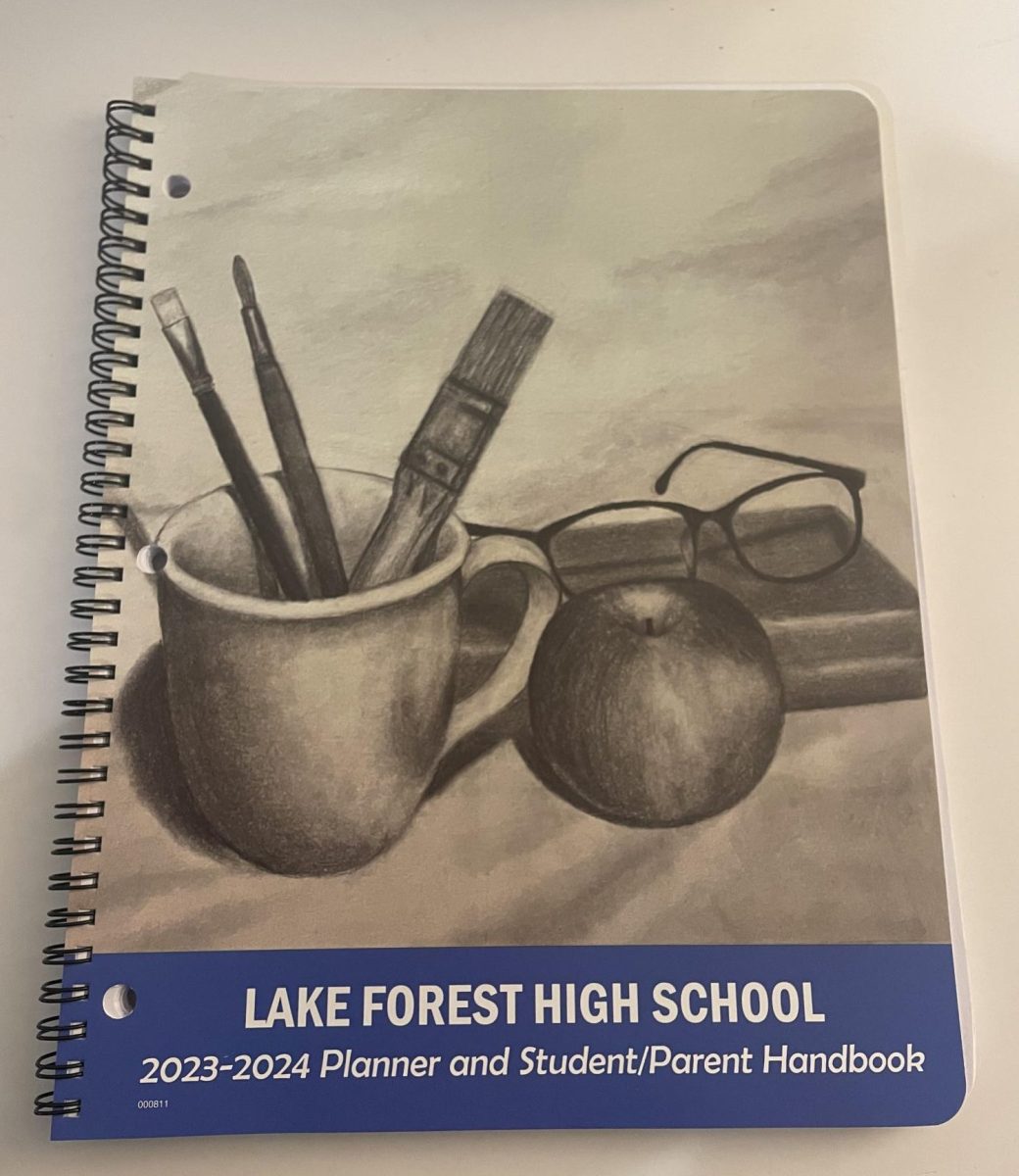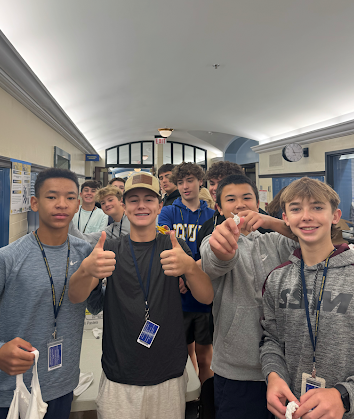Academic organization is a fairly recent addition to the American educational system. Executive functioning studies became prevalent in the early 2000s when the US Department of Education connected with Westat to research the implications of executive functioning within the learning environment.
Another popular concept that LFHS addressed in the early 2000s was emotional well-being. The ‘LFHS Way” campaign was structured to promote academic and emotional balance within students’ lives. The psychological correlations established between emotional stability and academic performances have consistently reflected a strong positive linear correlation which indicates that greater emotional stability improves academic success.
In the 2017-18 school year, LFHS implemented Schoology as a platform for all classes to use for assignments, deadlines, and other classroom resources. In accordance with promoting hand-written planning, book pickup automatically includes free planners for every single student structured with the subjects to help maintain organization as closely as possible.
Mr. Hain, the MTSS (Multi-Tiered Systems of Support) coordinator, was hired in 2018 with the intention of establishing an executive functioning mentor for the entire student body. Prior to Hain’s hiring, there was an after-school executive functioning tutoring program designed to help students with organizational skills. The program was effective but ultimately had low student attendance.
In 2023, an article was published commending Lake Forest High School for its leadership in mental health resources. At LFHS, each student has access to a CORE group of counselors such as a course counselor, dean, and social worker. In addition, they have access to psychologists and resource centers in core subjects including math, English, science, and social studies.
However, despite the increase in awareness and promotion of executive functioning within LFHS, it continues to be a problem for many students. What is hindering their success?
One could attribute the pandemic – which allowed for more flexible deadlines and a modified workload – to establishing lower standards that were never reset once normalcy resumed. This precedent continued in the local middle schools once normalcy resumed in the 2021-22 school year. The high school, however, returned to ‘late work’ policies and a standardized grading scale with finals worth 20% rather than 10% of the semester grades.
In 2020, the freshman class of 2024 was required to attend freshman advisory first semester. This was made possible due to the block schedule/bus schedule lineup as well as the convenience of remote learning that allowed virtual meetings to take place on Monday mornings. The course – which students attended once a week – addressed material organization, time management and use of class time, decision making, setting and achieving goals, as well as studying for mastery.
The program was initiated to help guide the transition into high school and to encourage students to use as many resources as possible. The hope was to provide students with the means to be successful despite the uncertainty that prevailed throughout remote learning. In the following school years, however, the administration could no longer incorporate freshman advisory into the schedule. This left the class of 2025 responsible for independently attending after-school executive functioning classes and self-advocating for additional resources. One way the gap was bridged was through the Wellness for Life curriculum which introduced the variety of resources available through a scavenger hunt.
Lance Ferges, an English teacher for freshman English 1-H, has maintained the same course load over the last decade with writing workshops, reading workshops, and class books. With the writing workshop being self-paced, students must work outside of class to obtain peer edits and must conference with the teacher prior to submission.
Ferges has noticed that Schoology has been a great resource for most students. “For me as a teacher, I think it’s a great tool because it keeps me as organized as it can keep the kids organized,” said Ferges.
However, he has noticed drawbacks, “Since the assignment is not on paper in front of them [the students], they don’t have to keep it in a planner,” which has complications for certain students, Ferges said.
“The system has had to change a lot. We haven’t had to lessen the expectations, but rather find ways to meet the kids where they are,” said Ferges.
So, what is the solution? Should Freshman advisory be reimplemented? Should there be a greater emphasis on deadlines with more consequences for late assignments?
Hain argues that in order to be successful, students must be able to independently identify and apply whatever organizational structure works best for them.
“Giving an organizational system that’s overwhelming to them [a disorganized student] is pointless because they won’t use it,” said Hain. “For some students, that means an assignment notebook won’t be used. Executive functioning, if done correctly, gives students tools they can use independently.”
As of this year, the local middle schools have begun implementing executive functioning practices. This includes requiring students to maintain assignment notebooks. The results of these practices could help reduce the impact of the freshman transition by establishing self-advocacy and stronger organizational habits early on.
Ultimately, the importance of determining what works best comes down to the individual. By finding what best keeps an individual organized, success can be achieved with less stress as deadlines can be preemptively evaluated and met in a timely manner. By reducing any unnecessary overwhelm that comes with school, students can establish a positive perspective towards a future of college or employment as they work towards independence.








